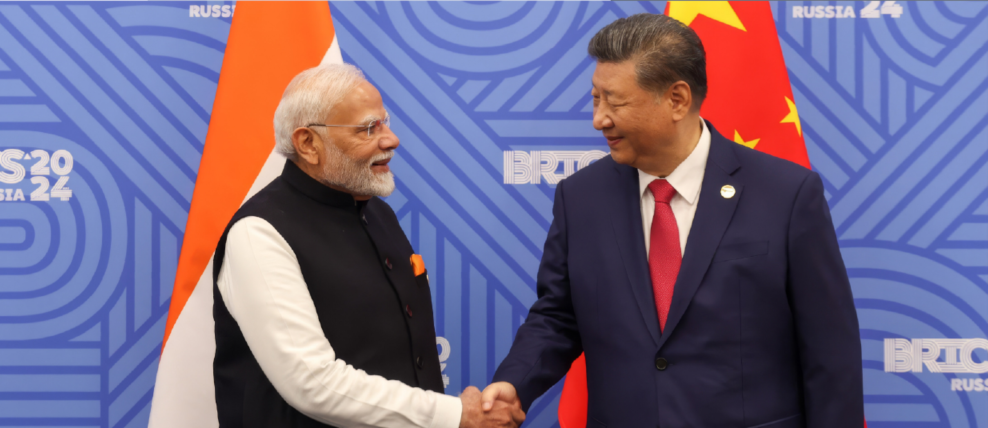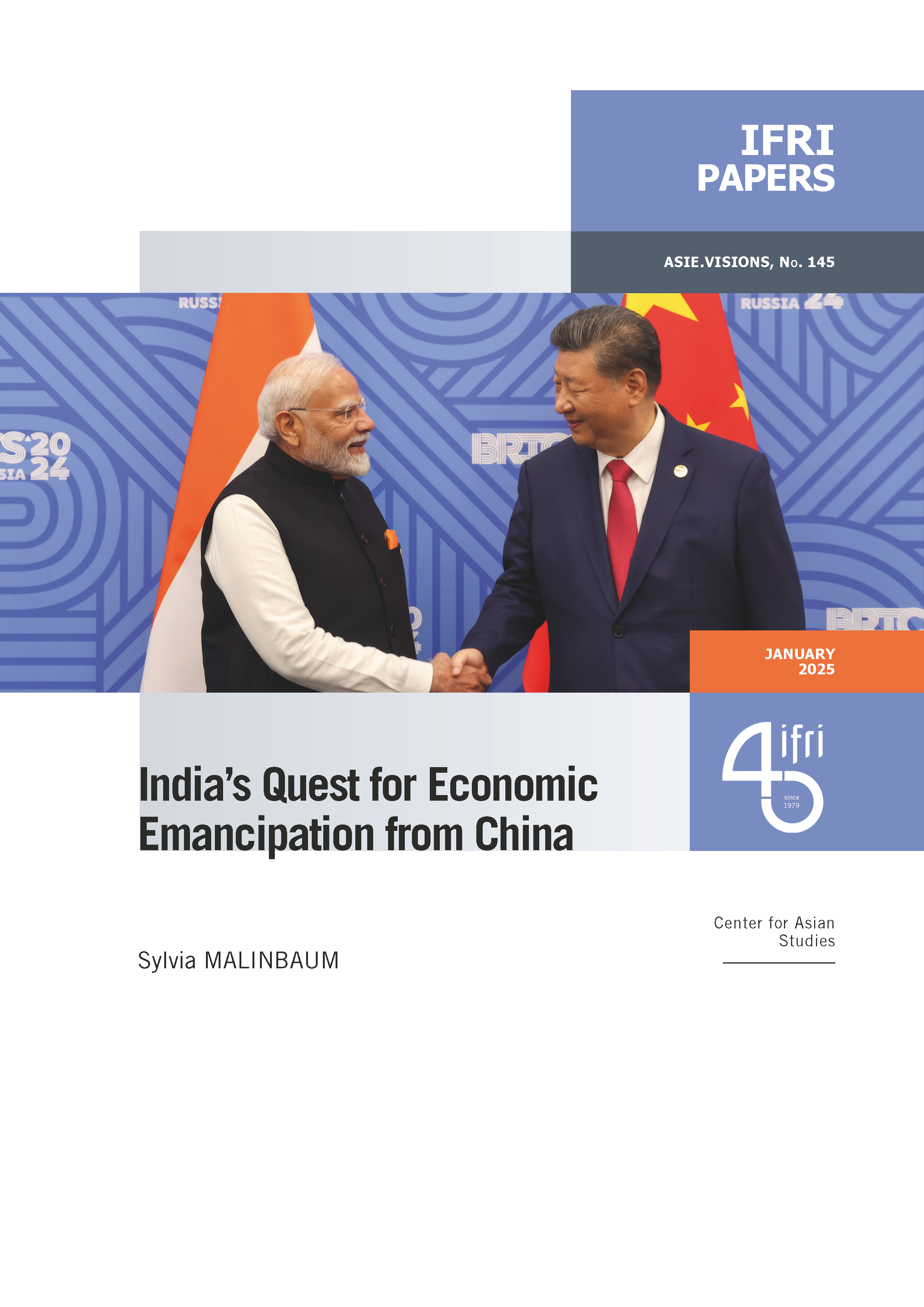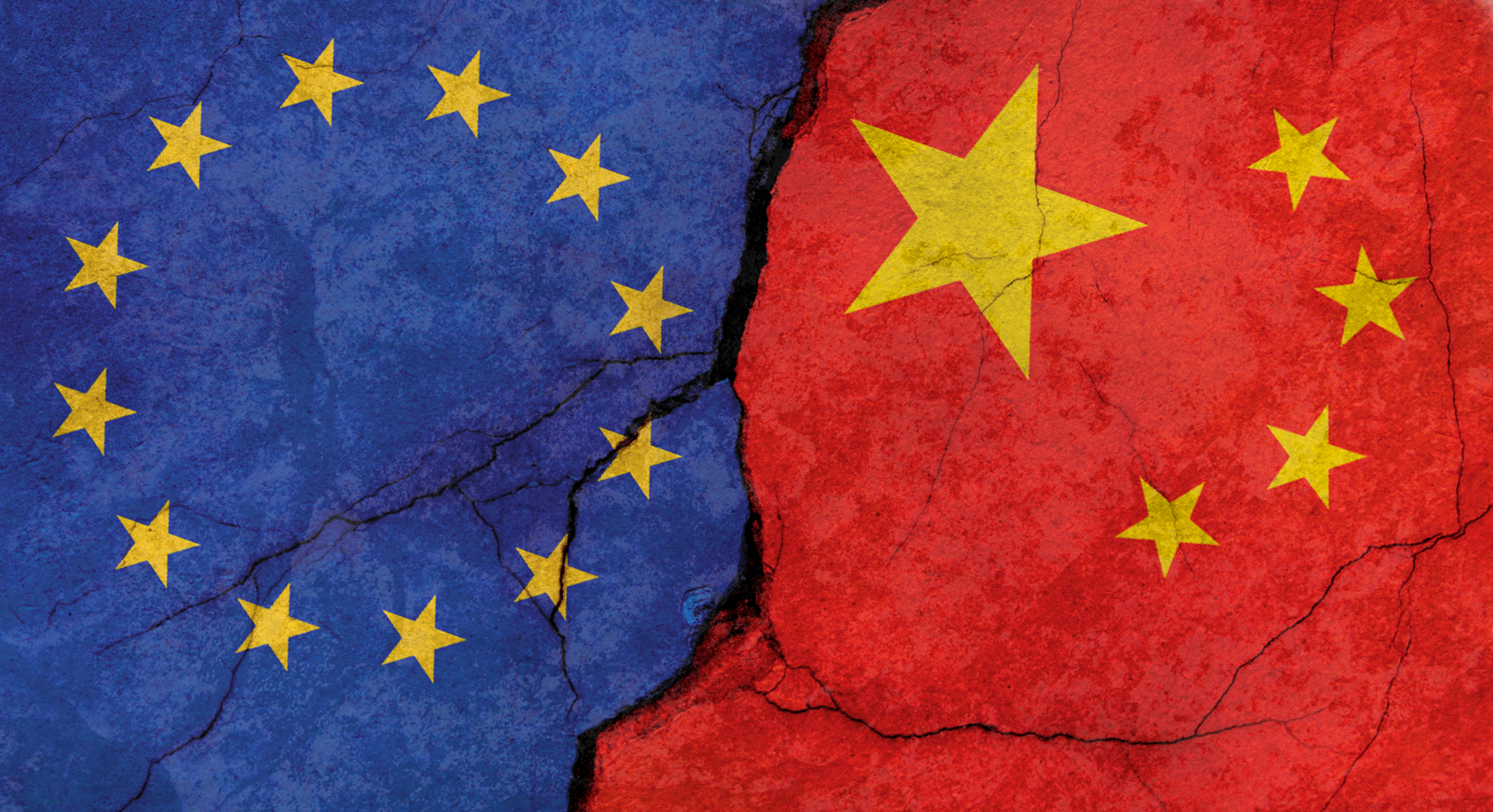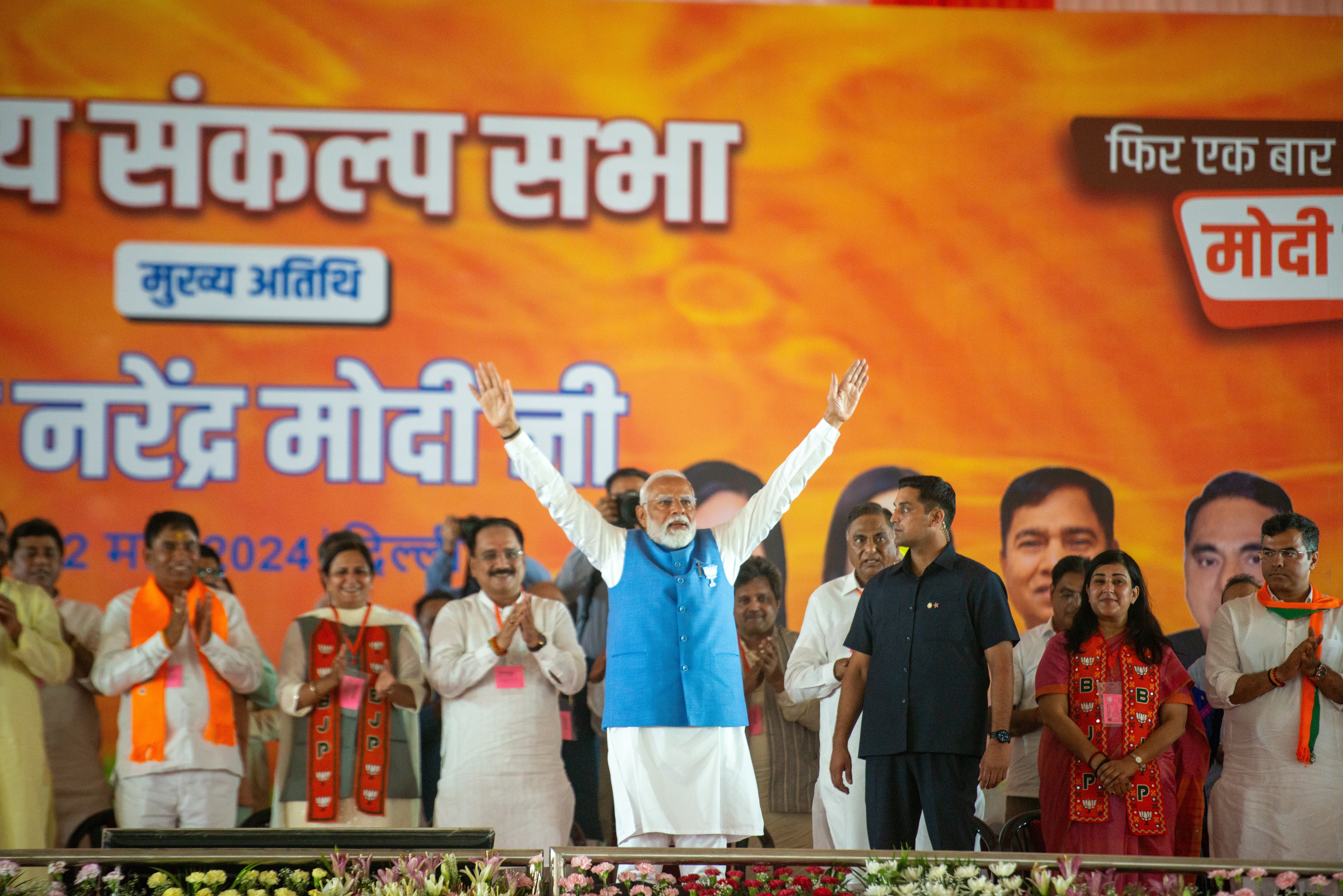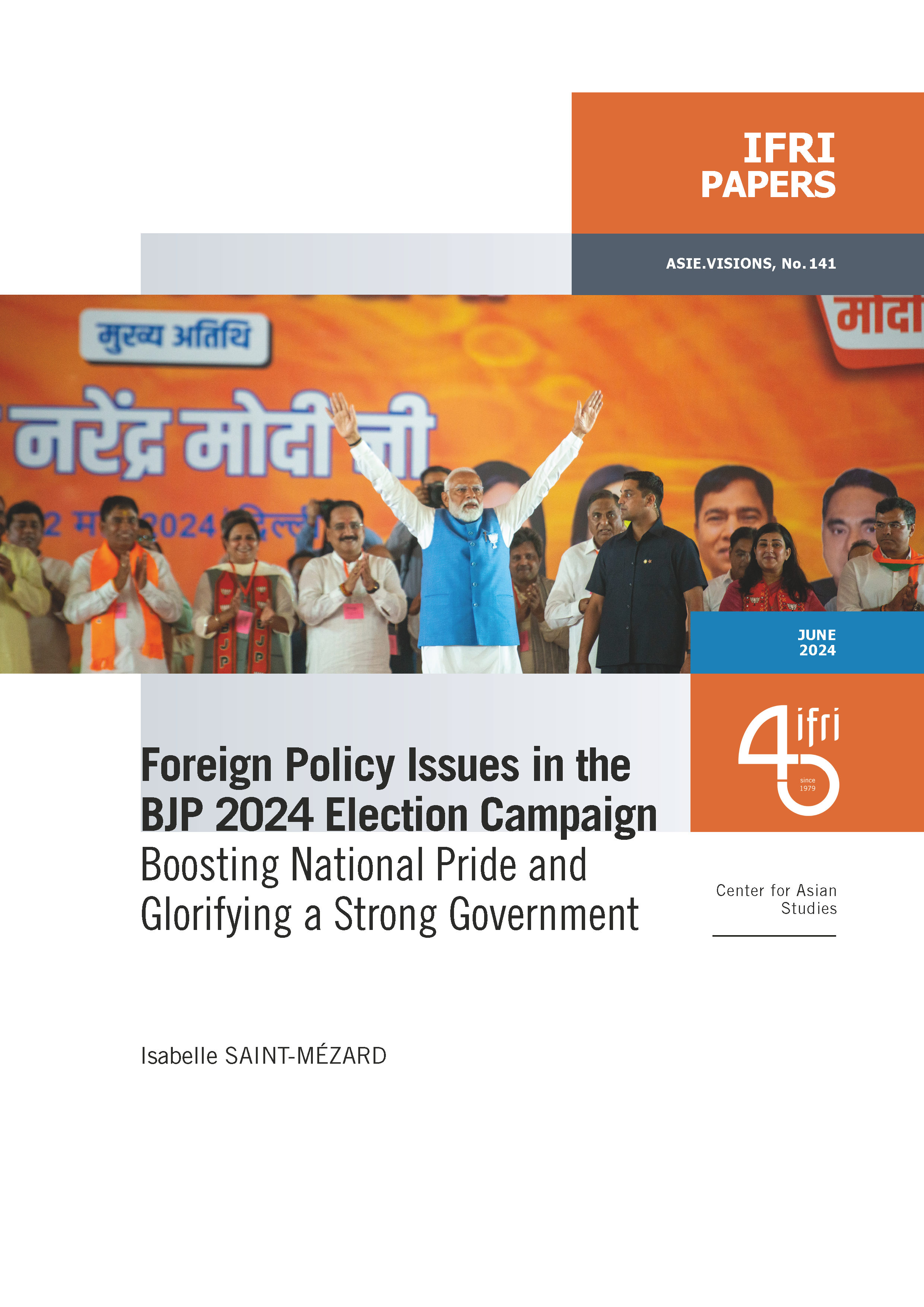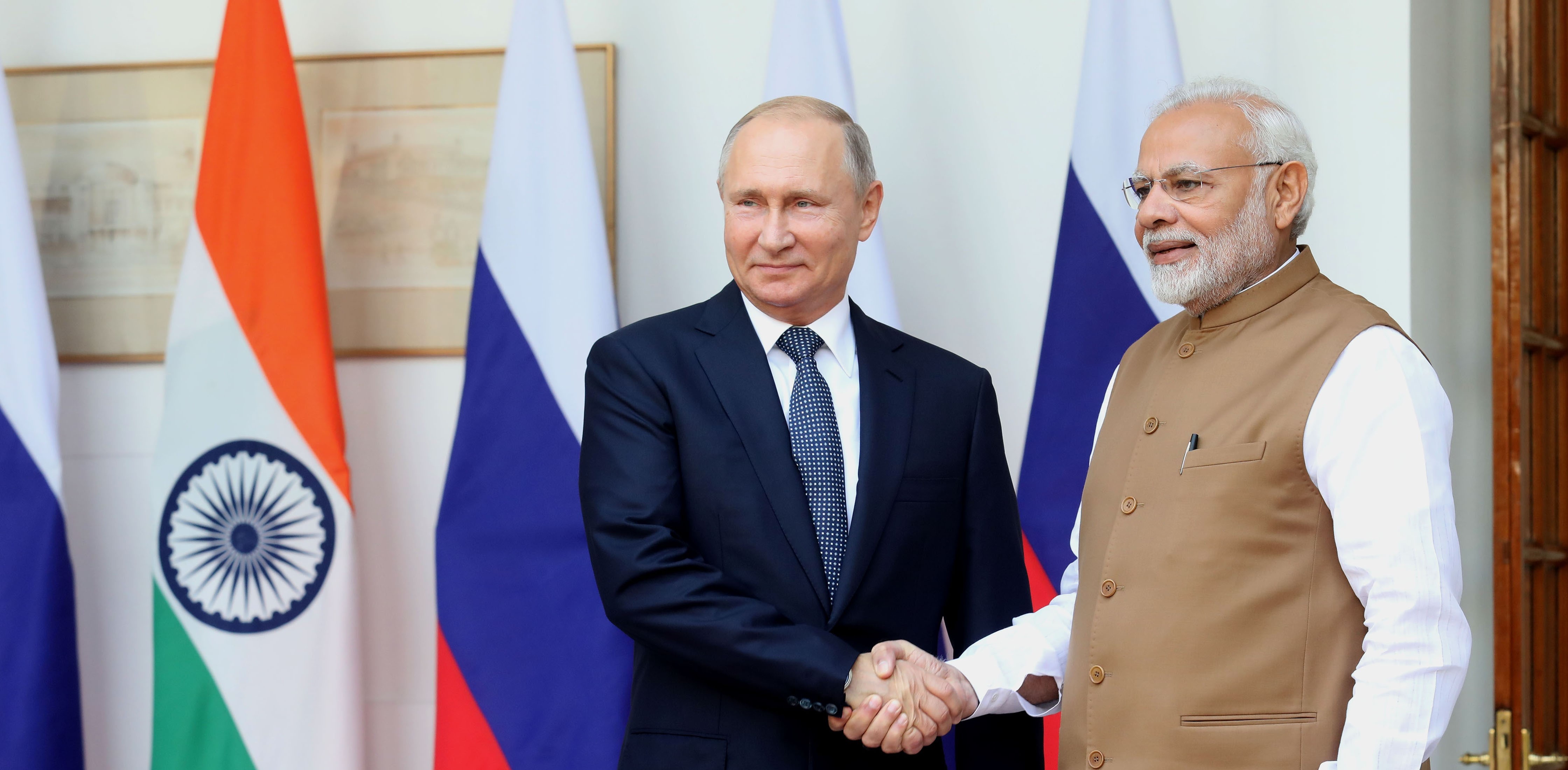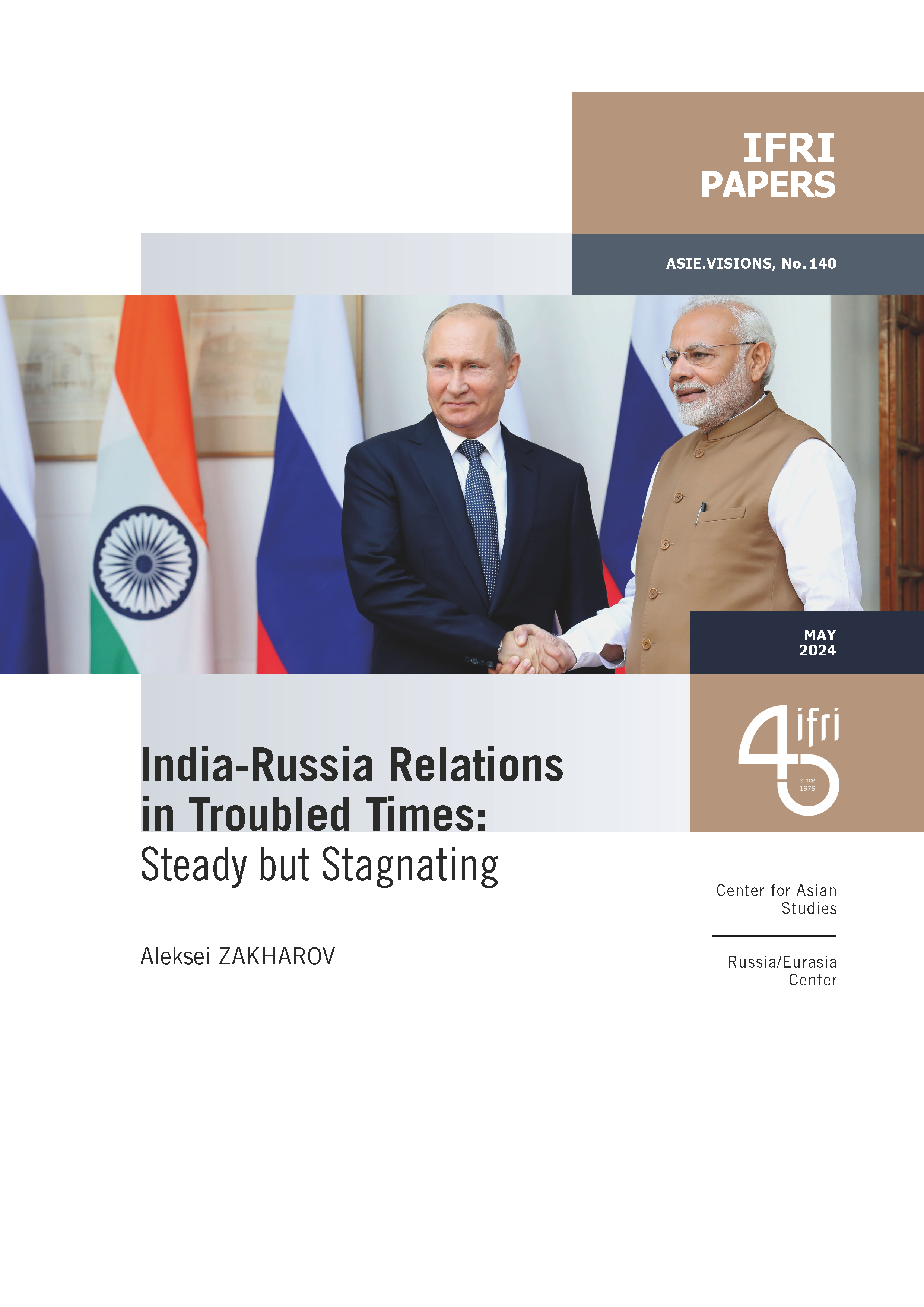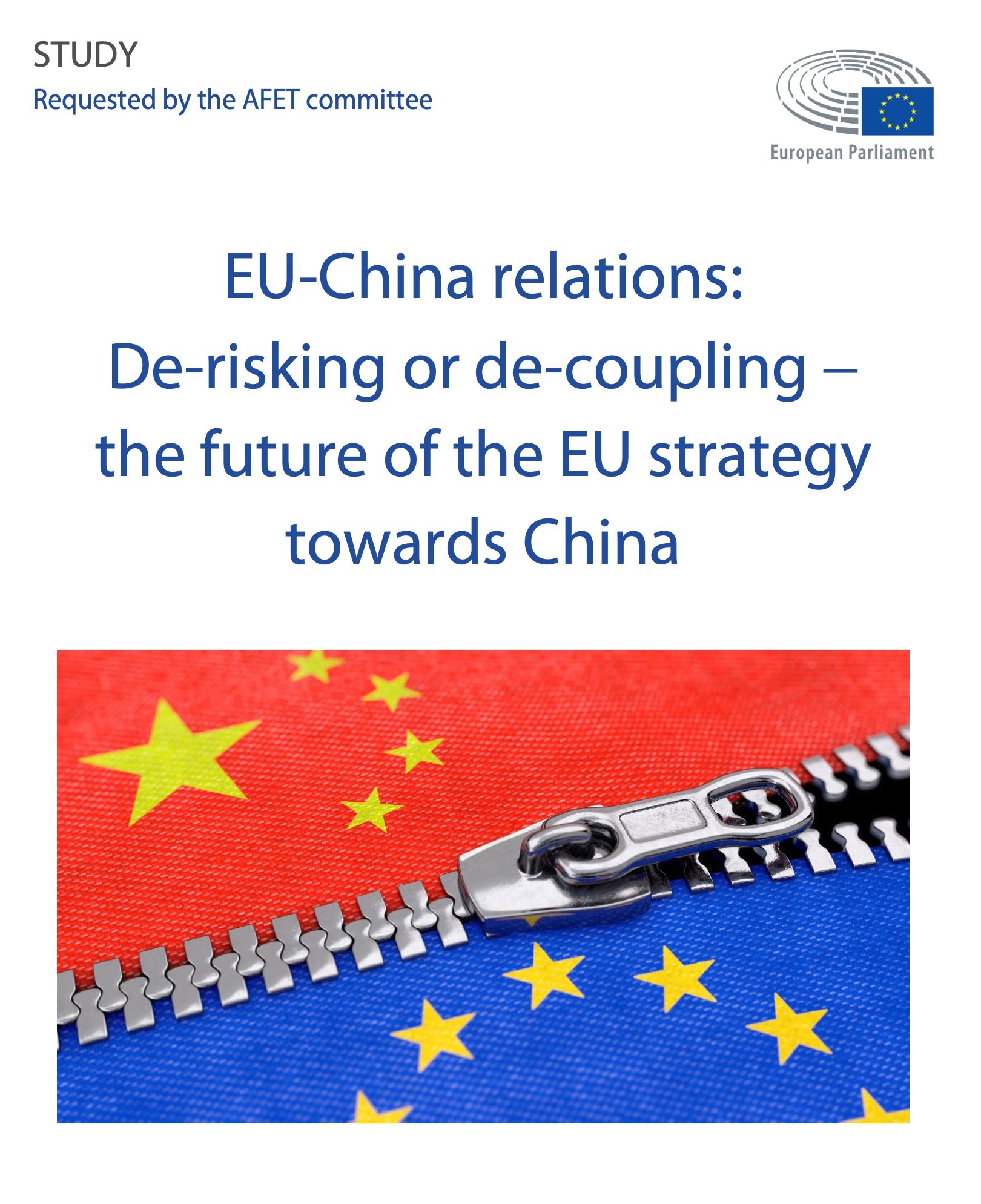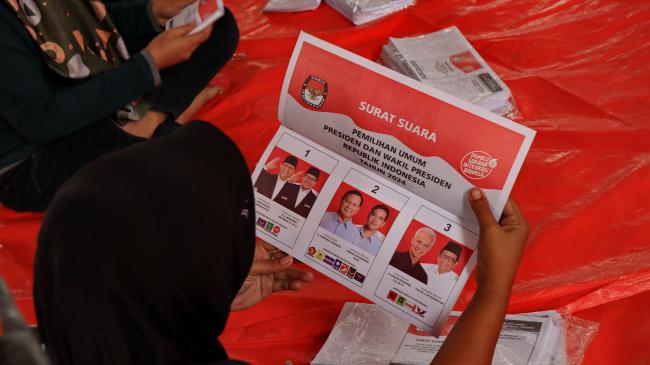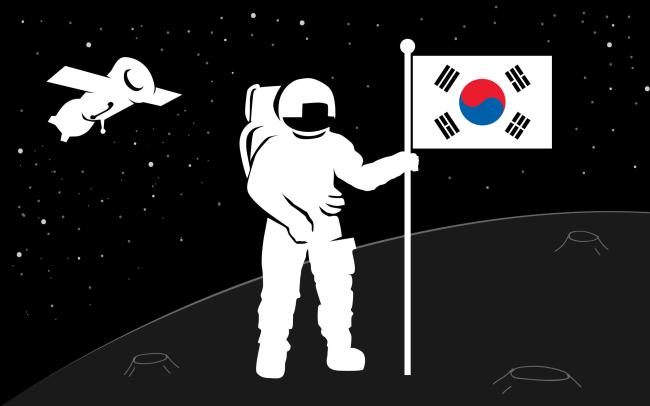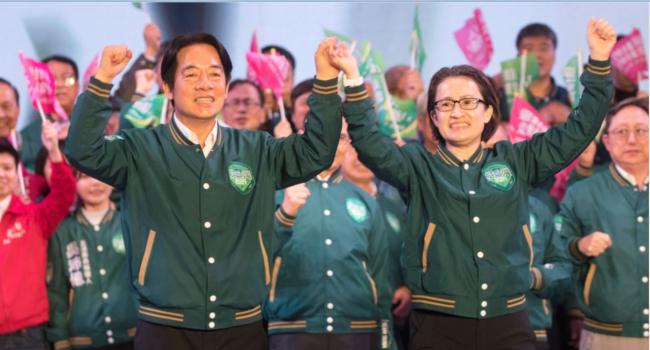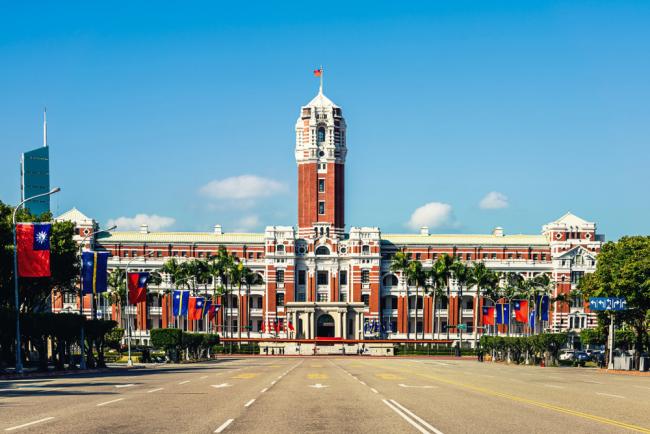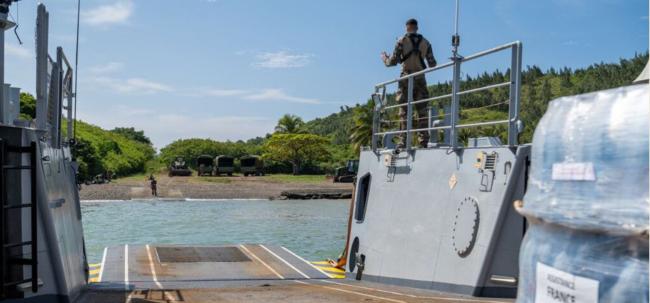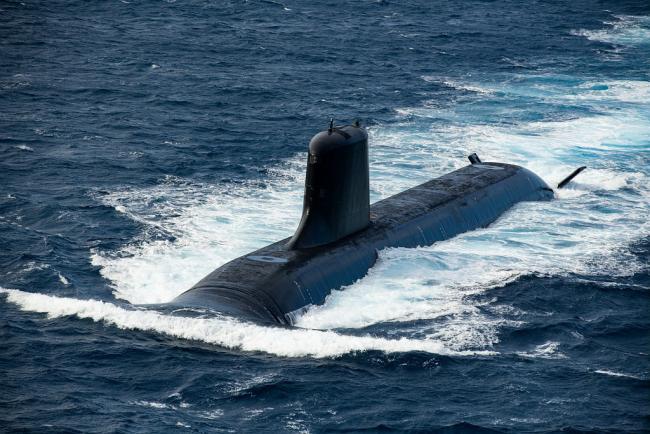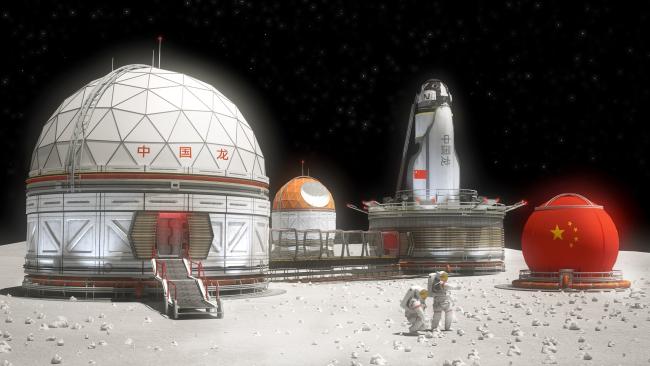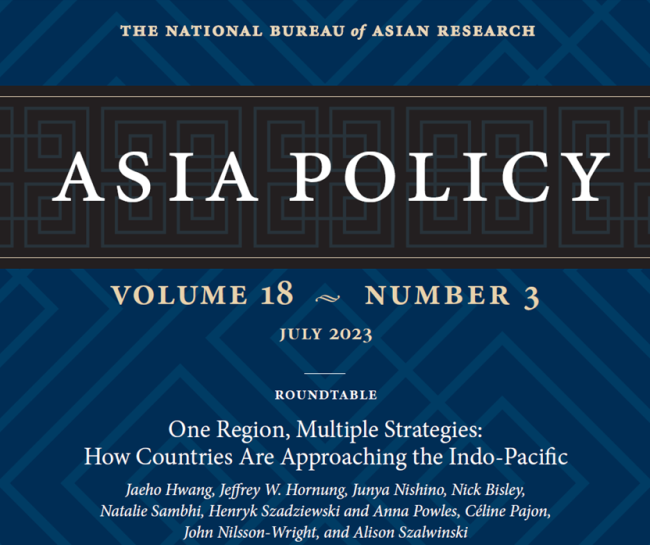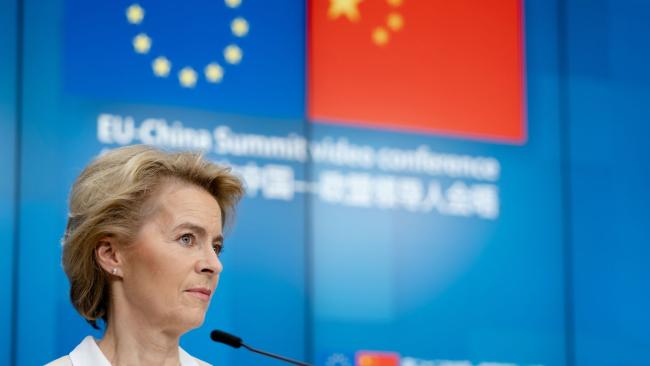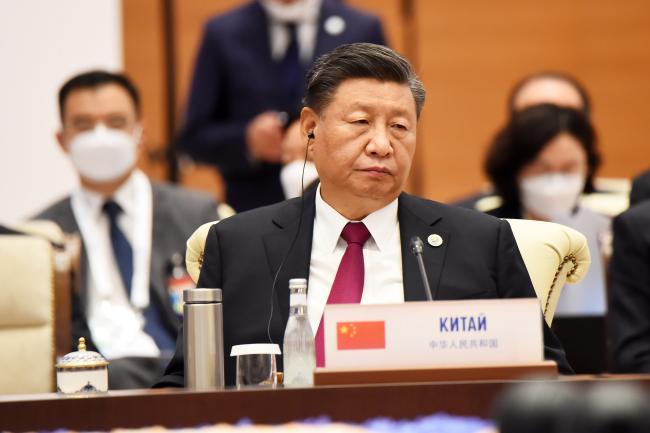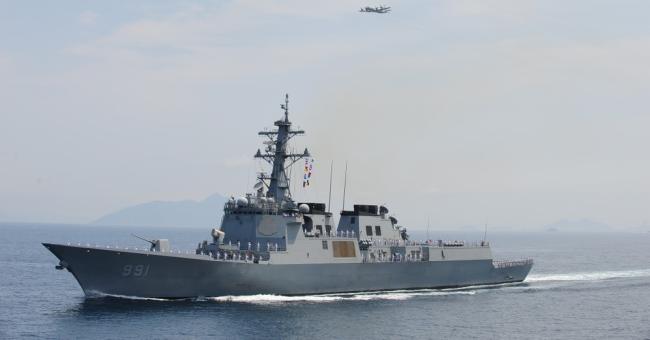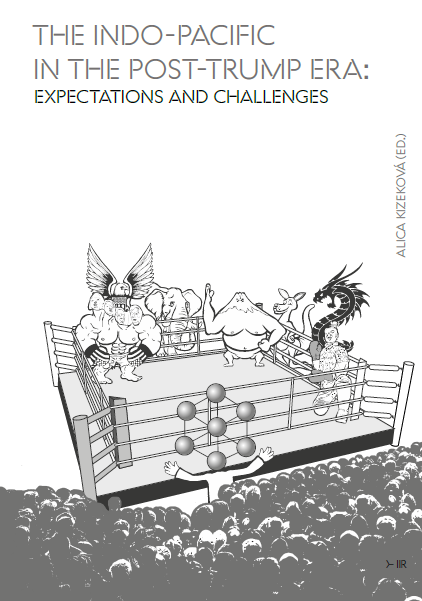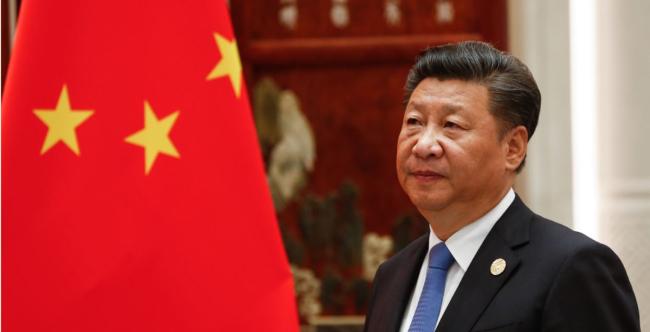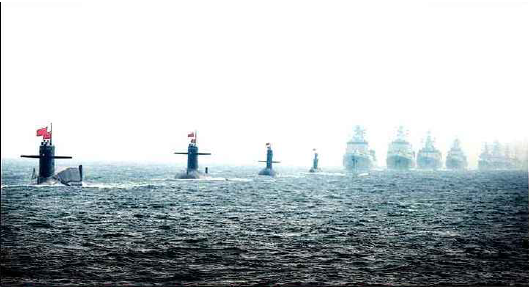Asia and Indo-Pacific
Asia and the Indo-Pacific are often presented as the heart of international relations in the 21st century.
Related Subjects

Has ASEAN become Marginalized within Regional Security Architecture?
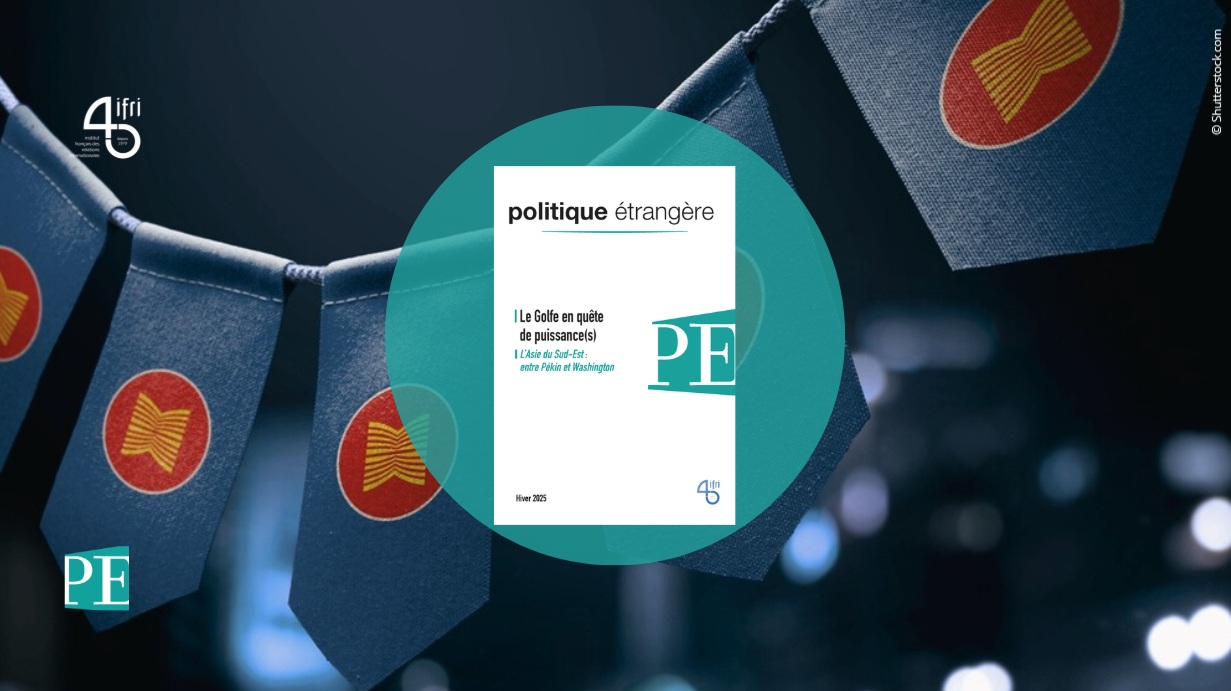
South Asian leaders continue to reiterate how “central” ASEAN is to the region’s security architecture. However, in practice, the tendency is to prioritize bilateral agreements, gradually marginalizing the organization. This fragmentation is weakening regional cooperation, accentuating divisions, and compromising stability in the context of growing tensions in the Indo-Pacific. These trends are worrying at a time when Sino-American rivalries are becoming more acute.

Indonesia’s 2024 Presidential Elections: Campaigning for Continuity
Indonesia is gearing up for its next general election on February 14, with a potential runoff scheduled in late June. This major electoral process will determine the nation’s next president and vice-president since incumbent President Joko Widodo, also known as Jokowi, will step down after ten years in office in compliance with the constitutional limit of two terms.

China, technical standardization, and the future of globalization
As the global economy sits at a crossroad between connectivity-driven globalization and strategic decoupling, technical standardization provides a valuable measure of where we are headed.
Evolution and Dynamics of the Space Industry in South Korea
The advent of the 21st century has witnessed the rise of the space industry as a pivotal arena of technological innovation, economic opportunity, and geopolitical significance. Amidst this global landscape, South Korea has emerged as an increasingly influential player in space exploration and technology.
China in International Space Cooperation: Heading South
In only three decades, China has become one of the world’s top space powers. At the turn of the 2020s, almost suddenly, China became the main challenger to the US, although with a significant remaining gap to bridge.
Taiwan's Elections: Victory but No Blank Check for William Lai
On January 13, 2024, the Democratic Progressive Party (DPP) was reelected for an unprecedented third consecutive term since popular elections began in 1996.
Taiwan’s 2024 Elections: A Moving Political Landscape with China Remaining Front and Center
On January 13th the young Taiwanese democracy will hold its 8th presidential election since direct universal suffrage began in 1996. The same day, the people of Taiwan will elect a new Parliament – the Legislative Yuan – which will start its term on February 1st. President Tsai Ingwen’s second and final term will come to an end in May.

France as a convening power in the Pacific: The Nouméa SPDMM
A little known regional dialogue offers France and other countries a chance to contribute to the “Pacific way”.
Reflecting on a Decade of the South Pacific Defence Ministers Meeting (SPDMM). Achievements and Future Pathways
The South Pacific Defence Ministers Meeting (SPDMM) is taking place in Nouméa (New Caledonia) from December 4th to 6th of this year.
Naval Nuclear Propulsion: The Technical and Strategic Challenges of a Restricted Technology
The technical and operational capabilities of naval nuclear propulsion - discretion, power, autonomy and manoeuvrability - make this technology a strategic asset for nuclear deterrence.
Racing to the Moon: China's Lunar exploration program in competition with the United States
A new Cold War-style race to the moon seems to be in the making. The People’s Republic of China and the United States are both investing in moon exploration with manned lunar scientific stations as the ultimate goal.

The EU, the Indo-Pacific and the US-led IPEF: Which Way Forward?
The paper provides a European Union (EU) perspective on the Indo-Pacific Economic Framework (IPEF).
France's IndoPacific Strategy: From a Balancing Power to a Constructive Stakeholder
France was the first European country to announce an Indo-Pacific strategy, launching it in 2018.
EU's China policy staying on track despite intensifying debate
While French President Emmanuel Macron’s state visit to China is viewed by some to be an exercise in stirring the pot, this does not mean that the European boat has veered off course. The EU is used to robust debate among and within member states, and can take this as another opportunity to affirm their stance on China.
Whither China After 10 Years of Economic Policies Guided by Xi?
As the 20th national congress of the Chinese Communist Party (CCP) draws closer, this is an opportune moment to appraise China’s economic achievements over the past decade under President Xi Jinping’s guidance and to identify the challenges the country will have to address during the next five years.
La paix par la force. La modernisation de la défense sud-coréenne sous la présidence Moon Jae-in
South Korea's defense modernization plan, Defense Reform 2.0, represents a significant effort in terms of military capabilities since 2018. The outgoing president, Moon Jae-in, has placed particular emphasis on high-tech acquisition as well as transforming the Korean defense industrial and technological base into a major domestic and international supplier.
Asia-Pacific mega trade deals (RCEP, CPTPP): Which role for the US, and what are the implications for the EU?
While it has long been reluctant to engage in institution-based regional economic integration, East Asia is now home to two mega trade deals: the Comprehensive and Progressive Agreement for Trans-Pacific Partnership (CPTPP) and the Regional Comprehensive Economic Partnership (RCEP).
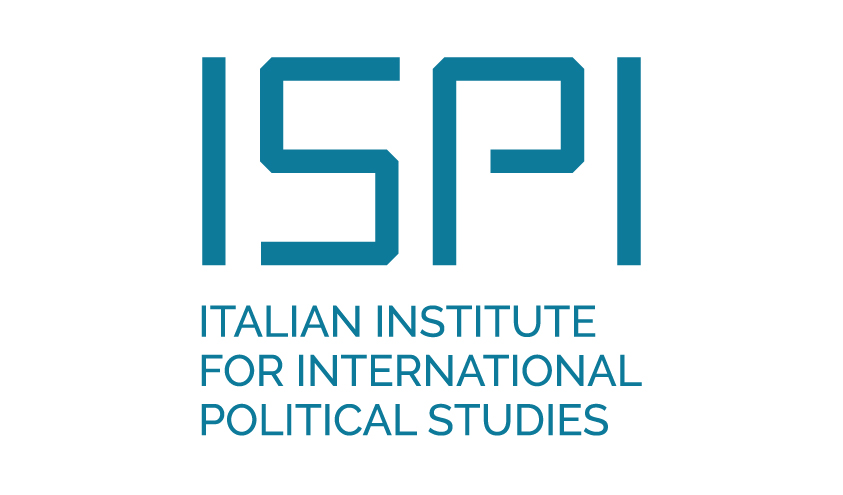
Xi Jinping’s Conquest of China’s National Security Apparatus
One indisputable trend of Xi Jinping’s leadership since taking up the reins of government in 2012 has been the reaffirming of the Party’s control over the state, the army, society, and the economy. To this aim, establishing heightened control over the national security apparatus has been his means as much as an end. Xi has thus strengthened the Party’s overall security authority through major institutional and legal reforms.
The regional economic order: Four scenarios
What will the economic order in the Indo-Pacific region look like twenty years from now? What are the major trends shaping it, and how are they likely to evolve in the near future?
Economy and Diplomacy: China’s two Challenges in the Post-Covid-19 World
Will China rise stronger from the pandemic? A flow of media reports and op-eds have recently flourished, forecasting the decline of the West and the triumph of China on the world stage amid the COVID-19 pandemic. Some have declared the dawn of a “post-Western world”.

France’s Indo-Pacific strategy: inclusive and principled
France’s recently launched Indo-Pacific strategy has attracted many critical and sarcastic comments.

Support independent French research
Ifri, a foundation recognized as being of public utility, relies largely on private donors – companies and individuals – to guarantee its sustainability and intellectual independence. Through their funding, donors help maintain the Institute's position among the world's leading think tanks. By benefiting from an internationally recognized network and expertise, donors refine their understanding of geopolitical risk and its consequences on global politics and the economy. In 2025, Ifri supports more than 80 French and foreign companies and organizations.






